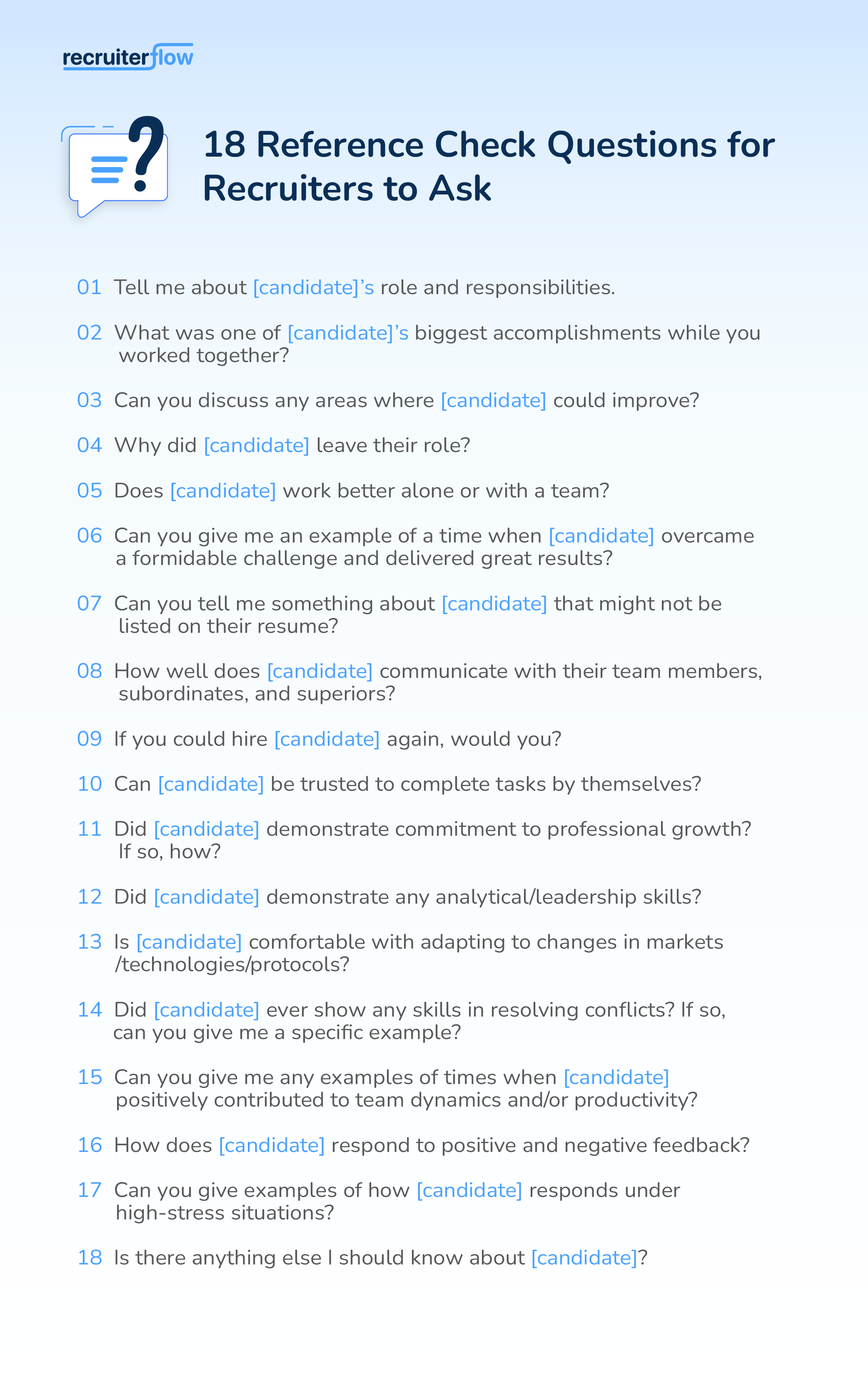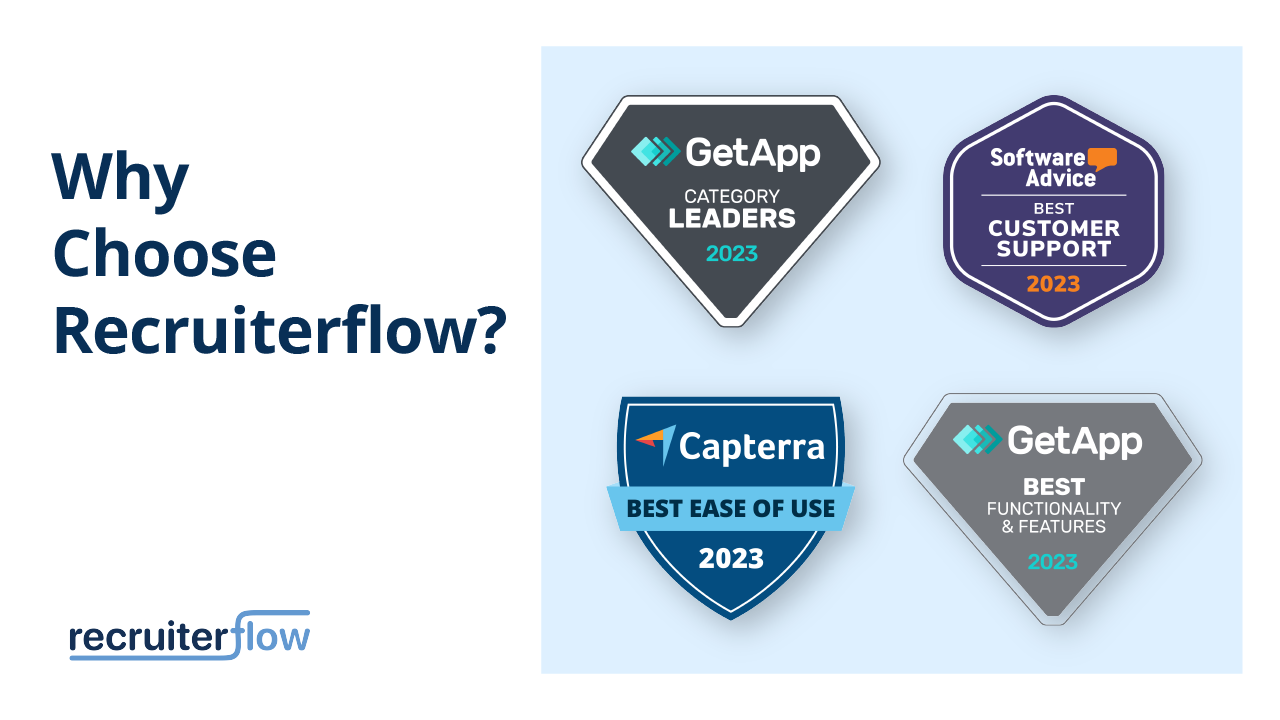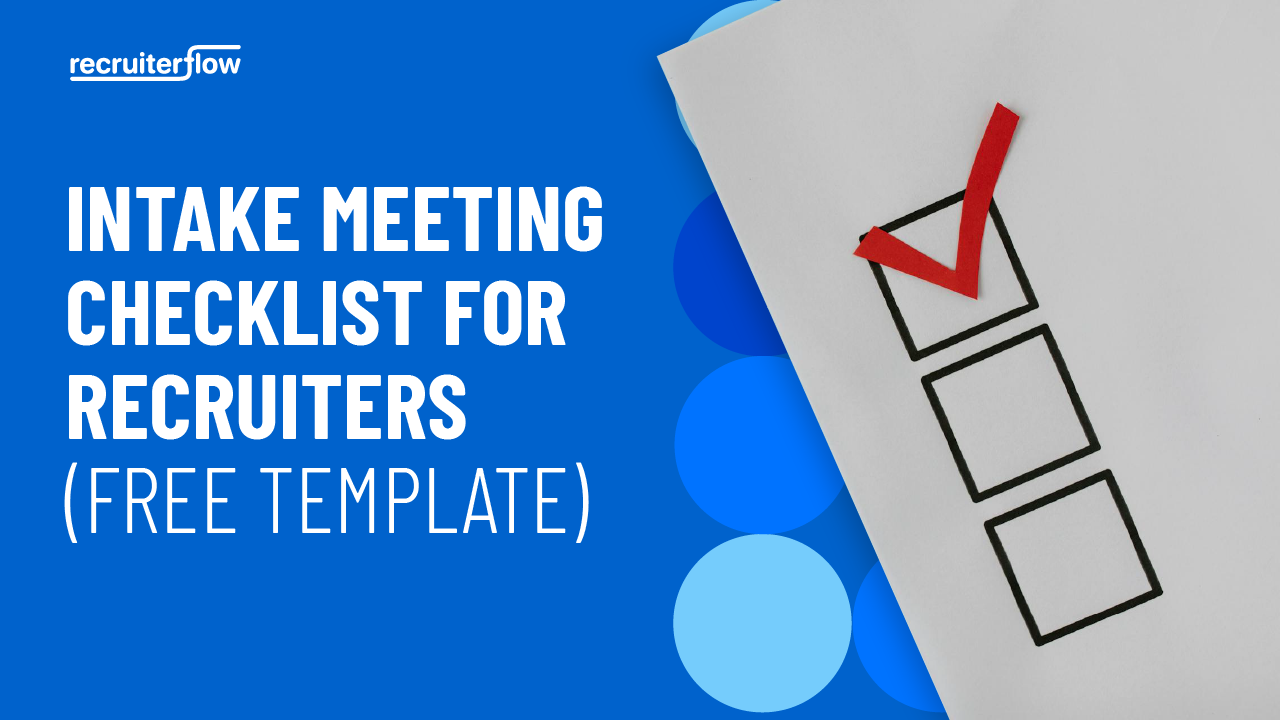
15+ Reference Check Questions to Ask in 2025

You know that even if candidates pass interviews with flying colors, they don’t necessarily qualify for the job. Reference checks often reveal flaws in a candidate that disqualify them as top talent.
However, a successful reference check requires a predetermined structure. It is not enough to just call the contacts listed by the candidate because these individuals are likely to give glowing reviews.
Instead, consider the following sample reference check questions and answers. They will help you understand the candidate’s most relevant attributes like performance, work ethic, consistency of results, etc.
What is a reference check and why is it crucial?
The reference check is how recruiters and hiring managers verify a candidate’s claims and information by contacting previous employers, colleagues, and managers.
The intent is to gather more information about the candidate’s professional history, qualifications, capabilities, and work ethic.
Generally, reference checks are conducted after the interviews and before the final hiring decision.
Why reference checks are essential for recruiters
- Data verification: Reference checks confirm the accuracy of the information on a candidate’s resume. Essential data points like employment dates, positions, responsibilities, accomplishments, and promotions are hard to verify without these checks.
- Insights into past performance: Reference checks throw light on how well a candidate performed in the past. Their work ethic, contributions, and ability to handle challenges are best known by people who have already worked with them. This information is also the best predictor of the candidate’s future performance.
- Insights into professional character: Along with skills, recruiters must gauge a candidate’s ability to merge with and thrive in a team. Reference checks reveal how a candidate communicates, handles conflict, and fits into the company culture.
- Assesses soft skills: Talking to managers and colleagues is ideal for identifying a candidate’s problem-solving abilities, interpersonal skills, and adaptability. These qualities aren’t always apparent in direct interviews.
- Uncovers red flags: Reference checks are an excellent tool to ferret out any potential red flags – frequent job changes, inconsistent performance, improper behavior, too many missed deadlines, etc.
- Promotes high-quality hires: By gathering feedback from references, recruiters can make a very informed hiring decision. They can get the data they need to only hire the highest quality individuals, which improves the likelihood of long-term success and retention.
Best practices for conducting reference checks
Ask the right questions to the right people
Before asking the reference check questions in this article, ensure you are talking to the right person(s). If the candidate does not proactively offer the contact information for their former managers or superiors, make a point to ask for it specifically.
Of course, if the candidate openly admits their job search is a secret to superiors, you can ask to speak to their current colleagues.
Consider asking some DEI (Diversity, Equity, and Inclusion) questions to the references
For many companies, a candidate’s understanding, experience, and commitment to creating an inclusive and equitable workplace is essential.
To this end, consider asking some specific questions during reference checks. For example, when talking to references, make an effort to gauge if the candidate helped with DEI initiatives or took positive steps to foster inclusivity.
Read More: DEI Interview Questions and Answers Recruiters Should Ask
15+ Questions for Reference Check to Ask
Before venturing into reference checks, ensure that you have duly asked the right strategic interview questions to candidates. Otherwise, you’ll be conducting these checks with limited data and possible misconceptions.
For a quick overview of essential reference check questions, refer to the infographic below:

General Questions
- Tell me about [candidate]’s role and responsibilities.
Start by verifying if the information provided by the candidate is correct. Ask how long and how closely they worked together.
Don’t expect complete accuracy since human memories aren’t always great. The manager might not be able to give you the exact dates and numbers, but the overall impressions of the candidate should match what you’ve already been told.
- What was one of [candidate]’s biggest accomplishments while you worked together?
When it comes to top candidates, they usually stand out consistently to their managers. This question will give you insight into how the candidate intelligently leveraged their skills and displayed initiative to overcome challenges.
If their manager struggles to think of any standout moments, then you have to rethink the candidate’s suitability for the role.
- Can you discuss any areas where [candidate] could improve?
It’s unlikely that the candidate will be completely upfront about their shortcomings. Your intent with this question isn’t to disqualify the candidate on small gaps but to look for major red flags before rolling out the offer letter.
- Why did [candidate] leave their role?
The reason behind the candidate’s departure tells you a lot about them. You have to verify if the manager’s answers meet what the candidate revealed during interviews.
If the candidate leaves for new opportunities or is switching career fields, that is usually a better scenario. Again, use this question to consider if the candidate is upfront and loyal, rather than eliminating them for understandable mistakes.
Questions on Personality and Work Ethics
- Does [candidate] work better alone or with a team?
If you’re hiring, you already have an idea of the candidate’s expected work style and ethics. The candidate might consider themselves to be suitable for whatever professional dynamics your team needs, but their managers will be able to tell you if you can get the best out of the individual in the particular position.
- Can you give me an example of a time when [candidate] overcame a formidable challenge and delivered great results?
For a top candidate, their manager should have a legitimate answer to this question. The candidate should have demonstrated the ability to take significant initiative and actually solve problems. This is different from Question 2, as the answer should focus on a specific example.
Ask for some details on how the candidate rose to the occasion, and how their actions impacted their employer’s business growth and/or credibility.
- Can you tell me something about [candidate] that might not be listed on their resume?
Asking a few open-ended questions gives references the chance to talk about qualities that aren’t often mentioned on resumes, but are reflective of their worth as an employee. For example, if your company has a sports team that competes in inter-team or inter-company competitions, a candidate with the right skills can be quite valuable.
Similarly, a candidate who has demonstrated helpfulness towards team members outside the ambit of their job is greatly valuable. You wouldn’t expect such a quality to be listed on their resume; it will only be spoken of by those who have seen this helpfulness in action.
- How well does [candidate] communicate with their team members, subordinates, and superiors?
Clear and transparent communication is essential to maintain healthy team dynamics. The candidate should be able to communicate comprehensively and appropriately with everyone they work with.
- Do they give all the information transparently?
- Do they approach others respectfully and with understanding?
- Does the candidate acknowledge other team members’/superiors’ contributions to a project by giving them their due credit?
All references should be asked about this particular attribute to ascertain the candidate’s fitness for employment.
- If you could hire [candidate] again, would you?
Needless to say, an affirmative answer is the only acceptable one. If the reference says “no”, ask for a detailed reason. Unless they can justify their denial, you might have to rethink your consideration of the candidate.
Questions on Adaptability and Self-Motivation
- Can [candidate] be trusted to complete tasks by themselves?
The best employees can take on significant responsibilities and complete them without too much intervention from others. They can’t do everything by themselves, but they should be able to find and talk to the right people to get the job done.
A high degree of self-motivation is extremely desirable among candidates, especially in startups and organizations without too many established workflows and hierarchies.
- Did [candidate] demonstrate commitment to professional growth? If so, how?
Did they take any classes or courses? They actively sought out knowledge about new technologies and best practices? Did they approach their managers to ask for feedback and suggestions for improvement?
A candidate who actively pursues professional growth is the ideal one, as they will be self-motivated to keep getting better at their job.
- Did [candidate] demonstrate any analytical/leadership skills?
The importance of this answer will vary based on the role you’re hiring for. However, at a high level, you’d want someone capable of taking charge and thinking through problems, especially in critical situations.
- Is [candidate] comfortable with adapting to changes in markets/technologies/protocols?
In certain industries, like IT, technologies and practices become obsolete at the speed of light. The ideal candidate should realize this, and always be ready to adapt to newer practices, tools, frameworks, and ideas.
Questions on Professional Behavior
- Did [candidate] ever show any skills in resolving conflicts? If so, can you give me a specific example?
Conflict resolution is a rare skill, and not necessarily required for every role. But if the role in question is at the management level, a lot of the candidate’s value depends on the answer to this question.
If the reference answers in the affirmative, don’t just take their work for it. Ask them for details, especially about the candidate’s specific contribution in settling a dubious situation in their team.
- Can you give me any examples of times when [candidate] positively contributed to team dynamics and/or productivity?
This is a more general question, allowing the reference to consider the candidate’s entire tenure at their previous company. Answers could range from the candidate coming up with ideas for greater process efficiency, helping out colleagues with complicated tasks, or establishing easier relationships with management.
- How does [candidate] respond to positive and negative feedback?
How a candidate responds to feedback says a lot about their work ethic and professional character. Positive feedback should not magnify their ego unnecessarily, and they should be able to take negative feedback with grace. Reasonable feedback is key to professional growth, and any worthwhile candidate should be able to not just accept it well, but seek it out actively.
- Can you give examples of how [candidate] responds under high-stress situations?
Not everyone is built for the high-stress conditions of top-level jobs. For instance, a great coder would not necessarily be a great leader for a development team if they cannot manage the consequences of say, a product recall or too many negative user reviews.
Ask the reference for solid examples of the candidate’s resilience under tough situations that test their mettle. If you’re hiring for a management position, this is an essential quality.
- Is there anything else I should know about [candidate]?
This is the obligatory question to wrap up the conversation.
Get the best out of reference checks by streamlining them with Recruiterflow
As a 360-degree recruitment management system built specifically for recruiting and staffing agencies, Recruiterflow has features to organize, assist with, and record reference checks. Think of it as the command centre for your Recruitment Operations (RecOps).
For instance, recruiters can create custom questions in the job application form and the responses will be collected for every candidate entry. Ask for reference information in these questions, and remember to specify that you want to talk to managers. If the candidate wishes to conceal their manager’s identity for some reason, they should be able to explain that reasonably.
Next, quickly sift through these answers via the Recruiterflow dashboard, and find the right people to contact. Get all information at a single glance on the centralized dashboard, and keep candidate information from becoming cluttered and out of recruiters’ control.
If you’re not convinced, how about a free demo? Let us show you how Recruiterflow can improve recruitment efficiency and lead to more efficient hiring pipelines.
Recruitment





Pragadeesh Natarajan